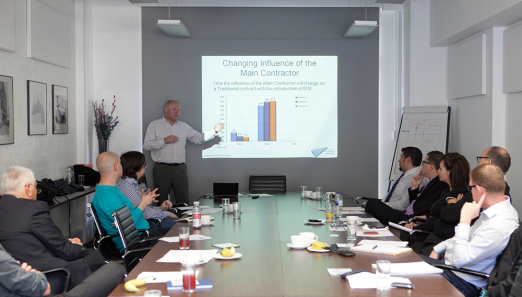For companies which offer value-added products, an effective specification strategy is vital to reduce the influence of price. Here are four key factors which need to be part of your strategy:
Get the specification right. Architects and Engineers are busy people and research has shown that in a high proportion of cases they re-use specifications. This cut-and-paste approach means that specifications are often out of date, with errors perpetuated. In many cases they will welcome the manufacturer reviewing their specifications or even providing them with a product specification. A great opportunity to get your products included, but specifiers very rarely nominate a single brand. Instead it is described as “Equal or Equivalent” or “Equal or Approved” or even a generic specification. It is thus important to ensure you provide well written specifications which improve the probability of your product being used.
Understand the Decision-Making Unit. The decision-making process for construction is highly complex. Amongst others it can include Client, Consultants, Quantity Surveyor, Architect, Engineer, Interior Designer, Main Contractor, Specialist Contractor, Distributor. All can directly or indirectly influence the decision to use your products. It’s important to understand where the influence rests for each project, and this can change subject to the experience of the Client and the type of Contract - Traditional or Design & Build for example. The role of the specification sales person is to understand these relationships and influence them as appropriate, protecting your specification as the project progresses through its various stages.
Trusted Advisor. You need to build faith in both your company and your specification sales team as Trusted Advisors. That means there is confidence in the reliability and expertise of your organisation which in turn leads to enquiries and referrals. This is not something that can be done quickly but requires use of all available communication channels to present a consistent message which reinforces that impression. CPD seminars are an ideal tool in this process. But remember that your organisation is not the only one doing this, so you need to better the performance of not only your competitors but other industry leaders.
Engage at the right time. For some years there has been talk of communications changing from the one-to-many approach of mass advertising to a one-to-one approach of targeted communications. Today we have the means to achieve this through CRM systems and marketing automation. Unfortunately, many companies do not use these systems effectively, instead they abuse their capability and continue to bombard the market with often irrelevant communications. Specification strategy requires that you understand the timing of when a decision is to be made and communicate using relevant content. This form of communication is generally welcomed by decision makers unlike the more general untailored communication which is often ignored.
Developing an effective specification strategy is a complex process, and no doubt that is why there is so much interest in our open course on Specification Strategy which has now been running for more than 10 years. Why not book on the Autumn course at the Building Centre to gain insights into how you can implement an effective specification strategy.
Chris Ashworth
Managing Director, Competitive Advantage
 Chris is founder of Competitive Advantage Consultancy which specialises in specification strategy via market research, training and consultancy for the construction industry. He is a a member of the BIM4M2 steering group and serves on the organising committee for CIMCIG, the Chartered Institute of Marketing’s Construction Industry Group.
Chris is founder of Competitive Advantage Consultancy which specialises in specification strategy via market research, training and consultancy for the construction industry. He is a a member of the BIM4M2 steering group and serves on the organising committee for CIMCIG, the Chartered Institute of Marketing’s Construction Industry Group.

